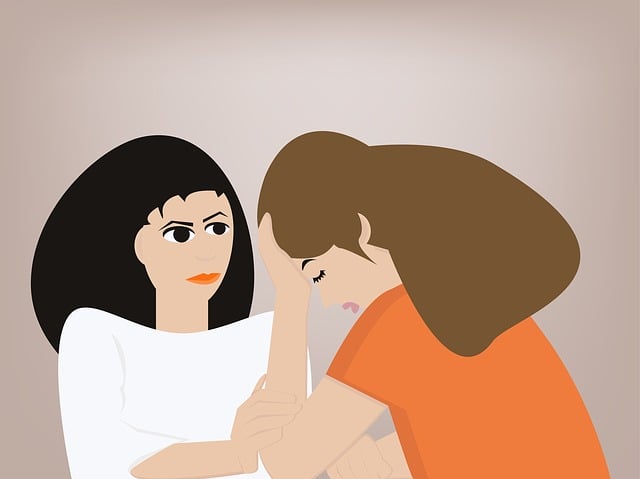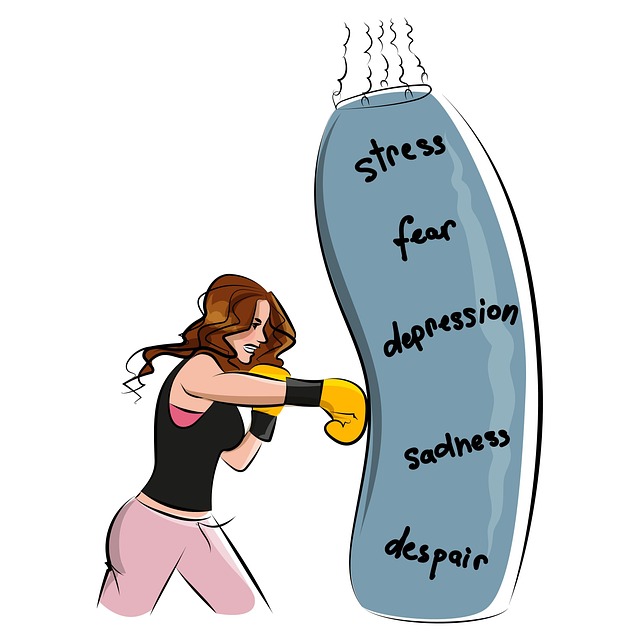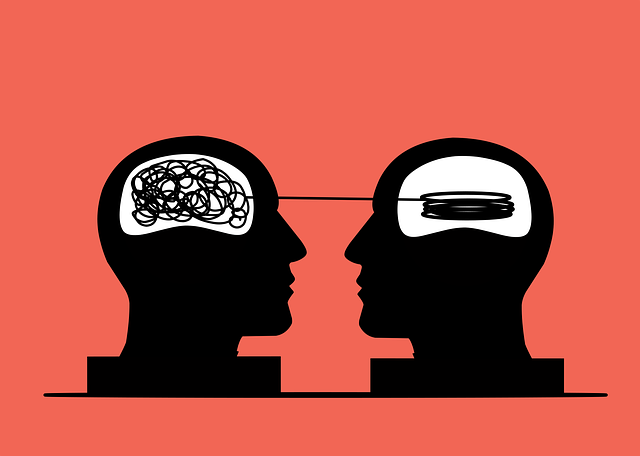Aurora Couples Communication Issues Therapy focuses on crisis intervention to help couples navigate emotional crises. Therapists identify specific communication breakdowns through skilled questioning, addressing issues like active listening difficulties or fear of vulnerability. Using active listening and empathy, therapists create a safe space for open expression, building trust and facilitating meaningful communication. Post-crisis support includes open dialogue, specialized therapy sessions, self-care practices, and Mental Wellness Coaching Programs to foster personal growth and stronger relationships.
In today’s complex social landscape, therapists play a crucial role in crisis intervention, especially within couples therapy. This article delves into essential strategies for guiding partners through challenging situations, focusing on identifying and addressing Aurora-specific communication breakdowns. We explore techniques like active listening and empathy as foundational tools, providing practical de-escalation methods and post-crisis support to foster resilience and healthy communication. Understanding these interventions is vital for therapists aiming to assist couples in navigating crises effectively.
- Understanding Crisis Intervention: A Critical Role for Therapists
- Identifying Aurora-Specific Communication Breakdowns in Couples Therapy
- Active Listening and Empathy: Building a Foundation for Intervention
- Strategies for De-escalation: Techniques to Calm and Connect with Couples
- Post-Crisis Support: Fostering Resilience and Healthy Communication
Understanding Crisis Intervention: A Critical Role for Therapists

In the realm of mental health support, crisis intervention plays a pivotal role, especially for therapists facilitating Aurora Couples Communication Issues therapy. When individuals or couples face severe distress or emotional crises, therapists must be adept at providing immediate and effective assistance. Crisis intervention is not just about responding to acute situations; it involves guiding clients towards building inner strength and developing coping mechanisms to prevent future depressions or relapses.
Therapists act as navigators through these turbulent times, employing empathy-building strategies to foster a safe, non-judgmental space. By practicing active listening and understanding the unique circumstances of each couple, therapists can offer tailored support. This process is crucial in helping clients identify and process their emotions, gain perspective, and develop resilience. In essence, crisis intervention therapy equips individuals with tools to enhance communication, resolve conflicts, and strengthen their bond, thereby fostering a more robust and supportive relationship dynamic.
Identifying Aurora-Specific Communication Breakdowns in Couples Therapy

In the context of Aurora Couples Communication Issues Therapy, identifying specific breakdowns is a critical first step. These communication breakdowns often manifest as recurring patterns of mis understanding, disagreement, or outright conflict within relationships. Through careful observation and skilled questioning, therapists can uncover underlying issues such as difficulty with active listening, fear of vulnerability, or differing expectations regarding roles and responsibilities. Recognizing these patterns requires a nuanced approach that considers the unique dynamics of each couple.
Addressing Aurora-specific communication issues necessitates a tailored strategy. Therapists should encourage open dialogue, fostering an environment where both partners feel safe to express their thoughts and feelings without fear of judgment. Promoting self-care routine development for better mental health can complement therapy by equipping individuals with coping mechanisms that enhance emotional regulation and improve communication. Mental health education programs design targeted at relationship dynamics can further enrich the therapeutic process, providing couples with tools to navigate challenges effectively. Public awareness campaigns development focused on relationship health can also play a crucial role in preventing and mitigating communication breakdowns before they escalate.
Active Listening and Empathy: Building a Foundation for Intervention

In crisis intervention, establishing a strong connection with individuals seeking help is paramount. Active listening and empathy form the cornerstone of effective guidance during challenging times. Therapists at Aurora Couples Therapy emphasize the power of these techniques to create a safe space for clients to express their feelings and concerns openly. By actively listening, therapists demonstrate undivided attention, allowing individuals to feel heard and understood, which is crucial in building trust and fostering meaningful communication.
Empathy, on the other hand, enables therapists to step into their client’s shoes, recognizing and validating their emotions. This approach helps clients feel supported and less alone during their crisis. Through active listening and empathy, Aurora Couples Therapy guides individuals toward better coping skills development, promotes mindfulness meditation as a stress-reduction technique, and encourages self-awareness exercises to help them navigate future challenges more effectively.
Strategies for De-escalation: Techniques to Calm and Connect with Couples

In situations where couples face communication issues and are experiencing a crisis, de-escalation strategies become essential tools for therapists in Aurora to facilitate a safe and supportive environment. The goal is to calm the emotional intensity while fostering connection and understanding. One effective technique involves active listening, where therapists encourage each partner to express their feelings and concerns without interruption. This simple yet powerful approach helps to normalize emotions and reduces defensiveness.
Additionally, mental wellness coaching programs can be tailored to guide couples through challenging conversations. Encouraging open dialogue, using reflective statements, and helping them identify underlying needs are all part of the process. These strategies not only address the immediate crisis but also contribute to long-term mental health awareness and wellness by enhancing communication skills. For instance, a Mental Wellness Journaling Exercise Guidance can be introduced to help couples reflect on their experiences and gain insights into each other’s perspectives.
Post-Crisis Support: Fostering Resilience and Healthy Communication

Post-crisis support plays a pivotal role in fostering resilience and healthy communication, especially in relationships like those in Aurora Couples Therapy. After an acute crisis or traumatic event, individuals and couples often struggle with emotional turmoil and communication barriers. One effective strategy is to prioritize open and honest dialogue, encouraging both partners to express their feelings and concerns without judgment. This can be facilitated through therapy sessions tailored to address specific communication issues, helping them rebuild their connection and understanding.
Additionally, developing a robust self-care routine and confidence-boosting activities can significantly enhance mental wellness. Engaging in regular Mental Wellness Coaching Programs or Self-Care Routine Development workshops can equip individuals with tools to navigate post-crisis emotions effectively. These initiatives promote personal growth, improve coping mechanisms, and encourage proactive measures to preserve and strengthen relationships, ensuring a brighter and healthier future together.
In the realm of couples therapy, crisis intervention strategies are indispensable tools for therapists addressing Aurora-specific communication breakdowns. By mastering active listening, empathy, de-escalation techniques, and post-crisis support, professionals can foster resilience and promote healthy communication in even the most challenging situations. These evidence-based approaches ensure that partners navigate crises together, ultimately enhancing their relationship’s tapestry.














